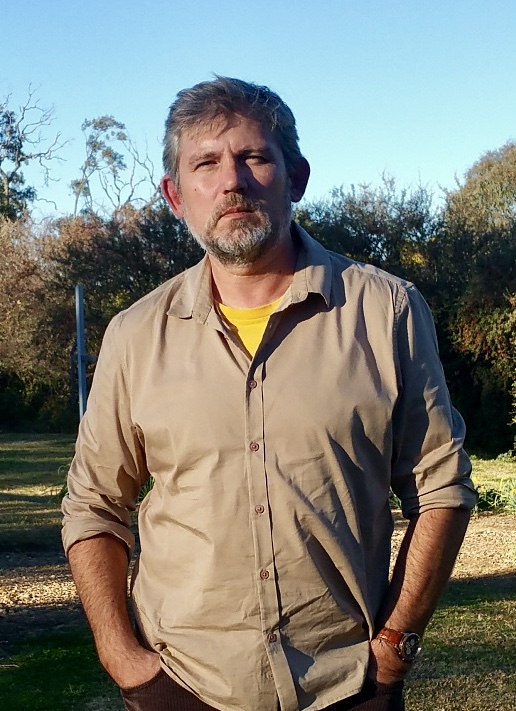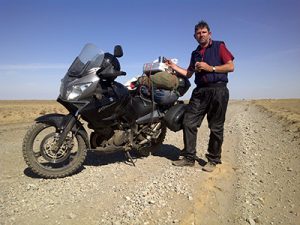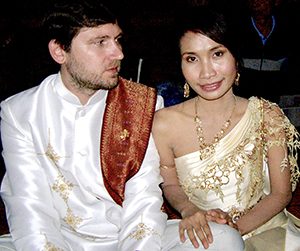Ciprian, who originates from Bucharest, Romania, was working as a law lecturer in China before he decided to move to Australia. Even though Ciprian always wanted to study law, he first completed an engineering degree. Before 1989 in Bucharest, law students were compelled to learn communist lingo and ideology, which Ciprian was not interested in. This all changed as a result of the Romanian Revolution, which eradicated communism in the country.
After completing his law degree in the mid-1990s, Ciprian joined a Romanian law firm which specialised in human rights cases – an unusual activity in the Romania of those years, so soon after the fall of the communist regime. He worked under the supervision of a senior lawyer who was later to become the Minister of Justice in Romania, and a presidential candidate. The firm was often successful in defending Romanian citizens who had their rights to physical integrity, to property, or even to life, infringed upon by authorities still unused to the democratic ways.
After a couple of years of legal practice, Ciprian did a masters in Asian Studies at Lund University (Sweden), and made the move into diplomacy, where he worked with the Romanian Embassies in Thailand and Egypt, in the consular sections. In 2011, Ciprian decided that it is time to register for his PhD in International Law. He chose Beijing as a place of study, and a motorcycle as a means of transportation between Bucharest and Beijing. It took him more than 2 months to complete the journey.
Ciprian’s PhD dissertation took the form of a comparative policy study aimed at policy makers in the Ministry of Commerce of China. The central theme, supported by legal, financial, ethical and reputational arguments, is the necessity that the Chinese government takes action to curb overseas environmental and social wrongdoing by Chinese investors.
Even though he originally intended to use a PhD to boost his diplomatic career, he decided to turn to academia instead. In 2014, after obtaining the PhD title, he was appointed as an Assistant Professor at the University of International Business and Economics in Beijing, the main economic university in mainland China.
Ciprian loved his time in China and found it to be a very enriching cultural experience. He also developed a number of solid friendships with his Chinese colleagues, and with some of his best students – especially those in the Jessup Moot court teams he coordinated. Obviously, Australia is significantly different to China in terms of urbanism or people’s lifestyle. A small city in China consists of a few million people, which is almost laughable in Australia! In China, eating meals out is not as much of a social occasion as it is in Australia. Instead people attend karaoke bars for evening fun and to socialise with their friends! But Ciprian is confident that he can adapt to any environment, after having lived and worked in places as divergent as Cairo, Bangkok, Bucharest and Beijing.
Ciprian decided to join the UNE School of Law as he has a strong research interest in communities. In particular he is curious about the intersection between governments, corporations and small communities. He notes the government often chooses to withdraw from these discussions, as they think many issues should be resolved by business and the community. Ciprian, however, would argue that in many cases the government should act as an arbitrator between business and the communities. Given his interest in these matters, it was an easy decision for him to move to a rural university which is situated in a vibrant, yet small, community!
Ciprian is enjoying Armidale’s rural lifestyle! He loves how green everything is and the fact you can clearly see the sky! He also likes the architectural coherence of the buildings in Armidale and the lack of skyscrapers. He finds people in the University City friendly and is impressed individuals from a wide variety of backgrounds can live in harmony. He is a bit worried about the hills though, as he has just bought a pushbike! His wife Chisa, an experienced Thai registered nurse, whom he married years ago in her remote Thai village, has followed him here.
When he is not working, Ciprian likes to go mountain trekking and being at one with nature. He also enjoys reading a wide range of literature, especially poetry, a habit he acquired before 1989, when aside from reading and debating the classics (Romanian – but also Russian, English, French etc.) all other intellectual activities were pretty much banned in Romania. TV programs for instance were restricted to 2 hours per day, half allocated to the speeches of the dictator, and half for a propaganda movie. During this time, Ciprian learnt to stay away from the TV and instead to read a large array of literature. He continues to do so, which is helped by the fact he can read French and understands Chinese and Spanish!
Ciprian will be teaching into LAW101 in Trimester One next year!





